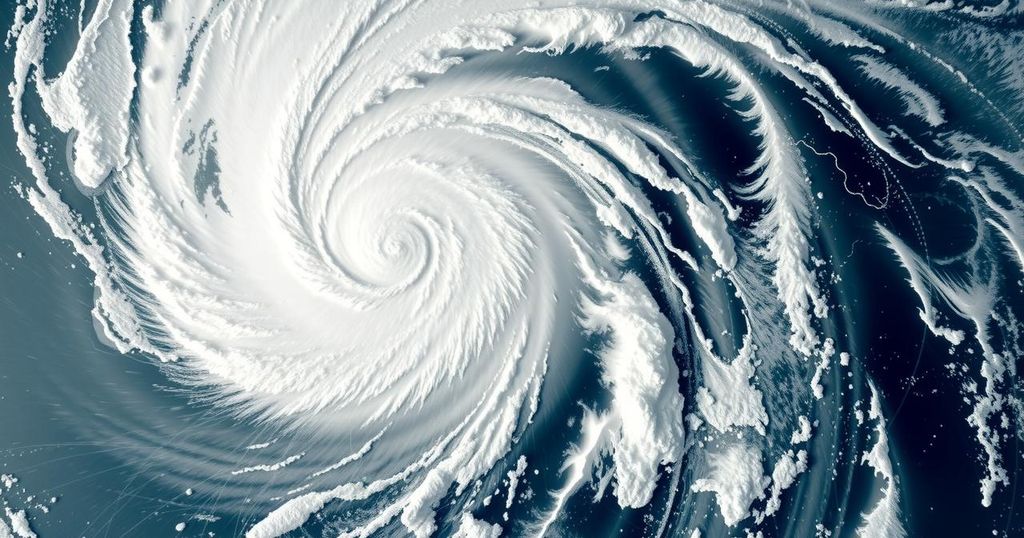Tropical Cyclone Chido’s Impact on Southern Africa: Flash Update as of December 14, 2024
Tropical Cyclone Chido has struck Mayotte and the Comoros, affecting about 2.5 million people, primarily in Mozambique, Malawi, and the Comoros. The cyclone has brought heavy rains and high winds, leading to warnings of flooding and mudslides. Authorities across the region are on alert, issuing advisories and facilitating emergency preparedness as Chido approaches landfall in northern Mozambique.
As of December 14, 2024, Tropical Cyclone Chido has intensified, impacting Mayotte and the Comoros with strong winds and heavy rains. The cyclone affects approximately 2.5 million residents in its projected path, with significant populations in Mozambique, Malawi, and the Comoros. Despite previous dangers, no damages or casualties in Madagascar have been reported post-cyclone passage as authorities conduct assessments. The cyclone’s trajectory is expected to pose additional threats to northern Mozambique and southern Malawi, leading to flood risks and mudslides. Preparations across nations include advisories and emergency measures to mitigate potential impacts as Chido progresses towards landfall.
Tropical Cyclone Chido has developed in the southeastern Indian Ocean, becoming a significant meteorological event impacting Southern Africa. The cyclone reached Tropical Cyclone Category 4 before weakening to a Category 3, causing concern as it approached land, particularly for regions like Mozambique and Malawi. Historical comparisons indicate that Cyclone Chido could exceed impacts seen in previous notable cyclones, prompting proactive measures and assessments from regional authorities.
In summary, Tropical Cyclone Chido represents a severe weather event affecting millions across Southern Africa, particularly in Mozambique, Malawi, and the Comoros. While initial damages appear minimal in Madagascar, ongoing preparations and assessments are critical as the cyclone continues its trajectory. With heavy rainfall and potential flooding forecasted, regional and national authorities are actively managing the response to safeguard communities.
Original Source: www.unocha.org




Post Comment